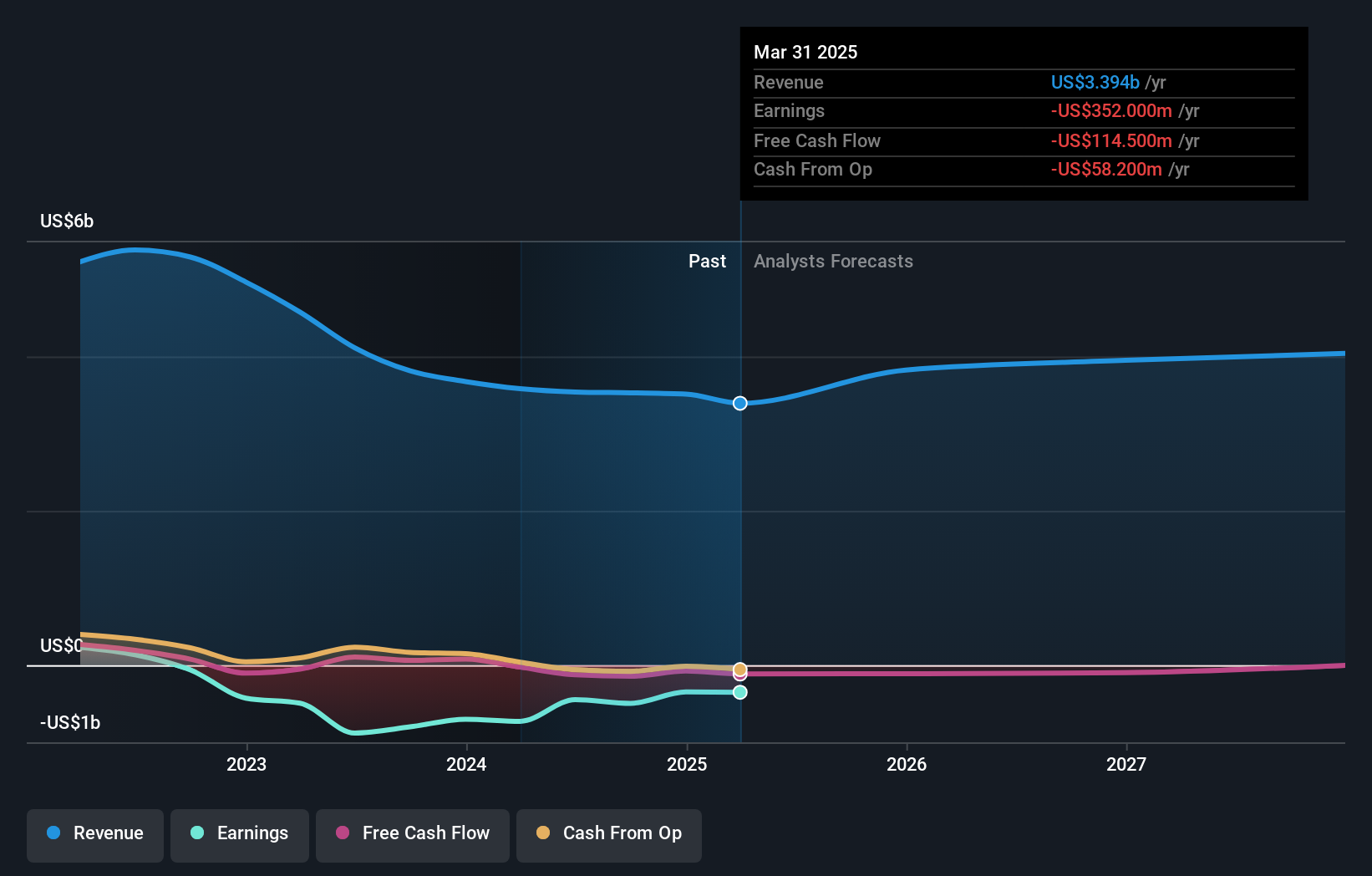Positive week for Trinseo PLC (NYSE:TSE) institutional investors who lost 16% over the past year
Key Insights
- Institutions' substantial holdings in Trinseo implies that they have significant influence over the company's share price
- A total of 8 investors have a majority stake in the company with 50% ownership
- Recent purchases by insiders
A look at the shareholders of Trinseo PLC (NYSE:TSE) can tell us which group is most powerful. With 53% stake, institutions possess the maximum shares in the company. That is, the group stands to benefit the most if the stock rises (or lose the most if there is a downturn).
Institutional investors would probably welcome last week's 12% increase in the share price after a year of 16% losses as a sign that returns may to begin trending higher.
In the chart below, we zoom in on the different ownership groups of Trinseo.
View our latest analysis for Trinseo

What Does The Institutional Ownership Tell Us About Trinseo?
Institutional investors commonly compare their own returns to the returns of a commonly followed index. So they generally do consider buying larger companies that are included in the relevant benchmark index.
Trinseo already has institutions on the share registry. Indeed, they own a respectable stake in the company. This can indicate that the company has a certain degree of credibility in the investment community. However, it is best to be wary of relying on the supposed validation that comes with institutional investors. They too, get it wrong sometimes. When multiple institutions own a stock, there's always a risk that they are in a 'crowded trade'. When such a trade goes wrong, multiple parties may compete to sell stock fast. This risk is higher in a company without a history of growth. You can see Trinseo's historic earnings and revenue below, but keep in mind there's always more to the story.

Since institutional investors own more than half the issued stock, the board will likely have to pay attention to their preferences. It looks like hedge funds own 18% of Trinseo shares. That worth noting, since hedge funds are often quite active investors, who may try to influence management. Many want to see value creation (and a higher share price) in the short term or medium term. M&G Investment Management Limited is currently the largest shareholder, with 21% of shares outstanding. For context, the second largest shareholder holds about 9.8% of the shares outstanding, followed by an ownership of 7.8% by the third-largest shareholder. Additionally, the company's CEO Frank Bozich directly holds 0.7% of the total shares outstanding.
We did some more digging and found that 8 of the top shareholders account for roughly 50% of the register, implying that along with larger shareholders, there are a few smaller shareholders, thereby balancing out each others interests somewhat.
While it makes sense to study institutional ownership data for a company, it also makes sense to study analyst sentiments to know which way the wind is blowing. Quite a few analysts cover the stock, so you could look into forecast growth quite easily.
Insider Ownership Of Trinseo
The definition of company insiders can be subjective and does vary between jurisdictions. Our data reflects individual insiders, capturing board members at the very least. The company management answer to the board and the latter should represent the interests of shareholders. Notably, sometimes top-level managers are on the board themselves.
Insider ownership is positive when it signals leadership are thinking like the true owners of the company. However, high insider ownership can also give immense power to a small group within the company. This can be negative in some circumstances.
We can report that insiders do own shares in Trinseo PLC. In their own names, insiders own US$2.9m worth of stock in the US$101m company. It is good to see some investment by insiders, but we usually like to see higher insider holdings. It might be worth checking if those insiders have been buying.
General Public Ownership
With a 26% ownership, the general public, mostly comprising of individual investors, have some degree of sway over Trinseo. While this size of ownership may not be enough to sway a policy decision in their favour, they can still make a collective impact on company policies.
Next Steps:
It's always worth thinking about the different groups who own shares in a company. But to understand Trinseo better, we need to consider many other factors. To that end, you should learn about the 4 warning signs we've spotted with Trinseo (including 3 which are a bit concerning) .
But ultimately it is the future, not the past, that will determine how well the owners of this business will do. Therefore we think it advisable to take a look at this free report showing whether analysts are predicting a brighter future.
NB: Figures in this article are calculated using data from the last twelve months, which refer to the 12-month period ending on the last date of the month the financial statement is dated. This may not be consistent with full year annual report figures.
Have feedback on this article? Concerned about the content? Get in touch with us directly. Alternatively, email editorial-team (at) simplywallst.com.
This article by Simply Wall St is general in nature. We provide commentary based on historical data and analyst forecasts only using an unbiased methodology and our articles are not intended to be financial advice. It does not constitute a recommendation to buy or sell any stock, and does not take account of your objectives, or your financial situation. We aim to bring you long-term focused analysis driven by fundamental data. Note that our analysis may not factor in the latest price-sensitive company announcements or qualitative material. Simply Wall St has no position in any stocks mentioned.
 Wall Street Journal
Wall Street Journal